Cancer has been a presence in my life from a young age. When I was two years old, my maternal grandmother passed away from ovarian cancer. When I was eight, I watched my aunt’s bubbly spirit fade and her long hair thin as she underwent chemotherapy for triple negative breast cancer, my hatred for “cancer” intensifying. It was only later that I learned the full impact of this experience on her – receiving a cancer diagnosis in her twenties, 5 weeks postpartum, with the recent memory of her mother’s cancer battle. Her hope for future childbearing took a backseat as she charged through cancer treatment, only to later find out that her fertility had been compromised. After many failed attempts, my aunt was able to conceive naturally – what many doctors chalked up to a “miracle.” Other women are not so fortunate.
Over time, this fear of cancer transformed into intellectual curiosity and formed the basis of my research and volunteer work. While living in New York City, I was introduced to The Chick Mission, a non-profit that funds fertility preservation for women with cancer ahead of lifesaving cancer treatment. Fertility preservation—including egg and embryo freezing—can be expensive and inaccessible, especially when compounded by the costs and urgent nature of cancer treatment. Cancer therapy can jeopardize a woman’s ability to conceive, but with The Chick Mission’s help, women do not have to sacrifice starting a family for survival. Over the last 6 years, The Chick Mission has provided over 500 Hope Grants to cover the cost of fertility preservation, revitalizing hope for patients amidst their diagnosis.
When I started at The Warren Alpert Medical School of Brown University, I found my mind returning time and time again to cancer care and Oncofertility. As a medical student, I have the unique and powerful opportunity to be a part of the most intimate moments in many patients’ lives (of course, with their consent). In speaking with patients and observing their experience, cancer or otherwise, the fear and uncertainty is profound. I thought back to my aunt, a new mom in her twenties, whose life was upended by a phone call with the words “You have Breast Cancer.” I don’t know what that feels like, but countless adolescents and young adults (AYA) do. Motivated by the work of Amanda Rice and Tracy Weiss of The Chick Mission, my aunt, and my patients, I developed this research project entitled “Counseling and Use of Surrogacy Among Cancer Survivors,” or CUSACS for short.
With the mentorship of Christine Duffy, MD, Director of the Adult Cancer Survivorship Program at the Lifespan Cancer Institute and breast cancer survivor, and Don Dizon, MD, Director of Pelvic Malignancies at Lifespan Cancer Institute – himself a parent of three via surrogacy – I developed a study to evaluate the fertility counseling that cancer patients receive at the time of their diagnosis, with particular attention to surrogacy. Knowing about these options could be helpful for some women yet the literature on counseling and use of surrogacy among cancer patients is virtually nonexistent, despite it being a viable option for parenthood in those facing cancer-induced fertility challenges.
To better understand women’s knowledge and experiences regarding surrogacy we created a one-time, online, anonymous survey distributed to AYA women cancer survivors nationwide. With this survey, we intend to capture the experience of navigating challenging fertility options amid a cancer diagnosis – with a focus on surrogacy counseling. From our phase I survey validation interviews with 17 cancer survivors, it became readily apparent that the counseling patients receive is not enough, and themes of identity, self-sufficiency, and regret revealed just how essential this work is. We are excited to distribute this survey through Stupid Cancer and reach AYA patients affected by cancer and infertility.
Many medical students and aspiring doctors derive passion from lived experience – whether that is a family member, a friend, or personal. My desire to care for cancer patients, to hear AYA cancer stories, and to engage in research that will improve outcomes for patients is in many ways a result of the cancer diagnoses my grandmother and aunt faced, and the far-reaching impacts of the BRCA mutation throughout my family. I am grateful for the ability to be a part of the conversation as a medical student, researcher, and future physician. I hope that this project can raise the voices of AYA cancer survivors and provide opportunities for improvement in the way we diagnose, counsel, treat, and care for the whole cancer patient – including their fertility goals.
By: Alexa Steckler, The Warren Alpert Medical School of Brown University, MD Class of 2026

